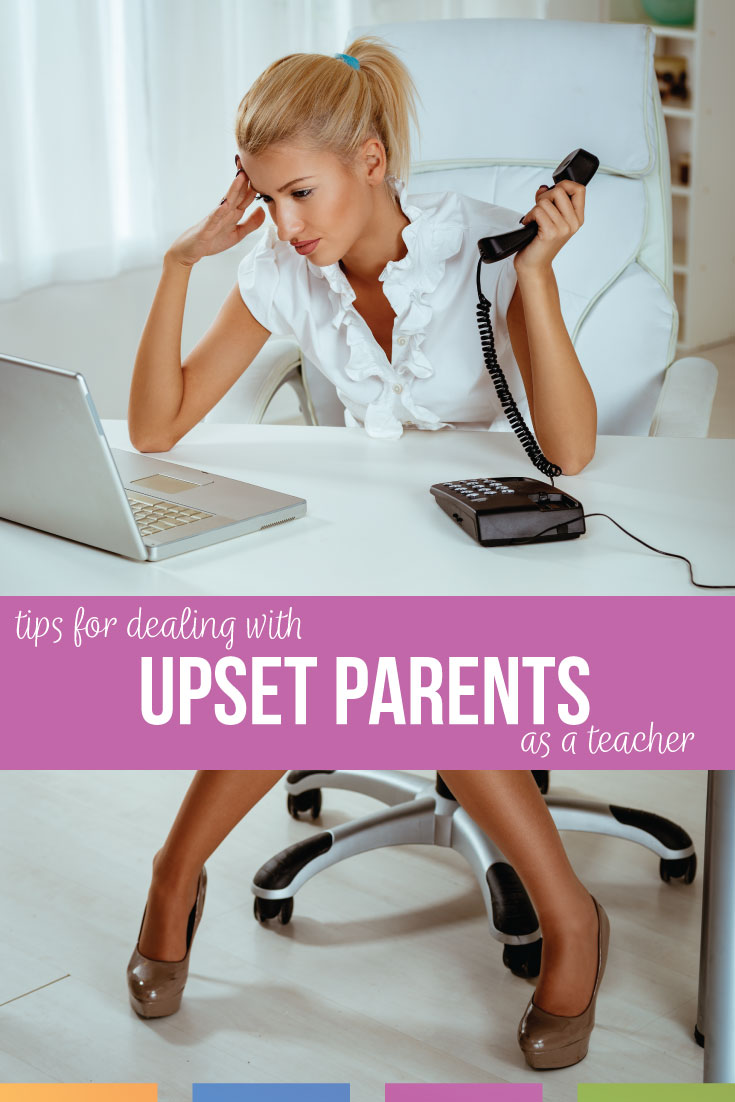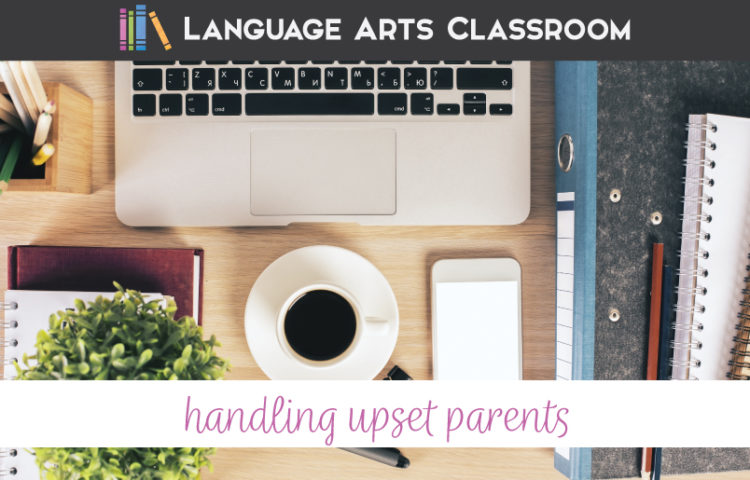Handling upset parents as a teacher—because this will happen.
So, it happens: a parent is upset with you. Dealing with angry parents as a teacher is often part of the job.
Sometimes it is about you. Other times, it was the “straw” breaking everything in this parent’s life. Sometimes it isn’t about you. Sometimes we have no idea. When we think of how to deal with angry parents as a teacher, you might not even know what “it” is.
As a teacher, you will be proactive, but problems will still occur.
Overall, use your best judgement. No blogger can imagine every possible circumstance, and you as the professional should take the situation into account. How to deal with an upset parent as a teacher? Try to stay calm, and walk through a few scenarios.
Here are some general guidelines for handling upset parents as a teacher, divided by specific circumstances.
No matter the form of communication from the parent, I would:
- Convey that you want to solve the problem together.
- Show documentation, such as late work policies, previous communication, and behavior history.
- Understand the emotions. This is the parent/caregiver’s child, and they are emotionally invested. You of course care about the student, but you should be objective about the situation.
- Keep your administrators in the loop.
You could say something such as, “I want to work through this with you. Why don’t you share your side of the situation?”
The way the parent communicates with the teacher matters! In some situations, you will have more flexibility and time.

If you get an email or telephone message, I would:
- Talk to the student’s counselor. They might know about something bigger happening. This will also show that you are invested in the best outcome for the student.
- Talk to the dean.
- Talk to your direct boss. This may be the principal or the lead teacher; every school designs itself a bit differently.
- Write down points that are important to the situation before you call. (Normally, you should call and not email, especially when a parent is distressed.)
- Bounce an idea off your mentor teacher or teaching coach. If you can get another adult’s perspective, you might arrive at the discussion with parents with a fresh approach.
In your script, you could say: “I am aware of the situation, and I have spoken with ___. What do you think about ___?”
If you get a phone call with a screaming parent, you have some choices to make. You can:
- Immediately ask if you can speak at another time. This will allow you to follow the steps above.
- Listen for a minute, and then ask if you can interject.
- Tell them (politely) good-bye and hang-up. I have never done this, but I have always been able to interject and then discuss solutions. If a parent were name-calling and cussing, I would do this and then speak to my principal.
- If possible (if the parent is available after students leave), talk at the end of the day. Upset parents will probably rattle you! Talking during the day makes teaching difficult, and a discussion can eat up all of your prep.
You could say something like, “I want to work together. Could we speak at another time after we gather our thoughts?”
Teachers are humans, and despite best intentions, we make mistakes.
If you are in the wrong, I would:
- Acknowledge what happened.
- Sincerely apologize. One time I had an angry parent because her son had asked for an extension, I granted it, and then I gave him a late grade because I put his paper in the wrong pile. She told me that; I remembered and apologized for my slip. His grade was fixed immediately, and she thanked me for changing it so quickly. (Most parents will acknowledge that you are human and will appreciate your quick fixes.)
- Focus on the solution. Unless you did something illegal (I have zero advice for that!), concentrate on how the situation will get better, what will happen now, and how you plan to change so that similar problems don’t appear again.
Think about what will help the parent, such as: “My intention was ___, and I realize that I should have presented the topic this way___. ”
I’ve taught for ten years and had a screaming parent—twice? This is many first year teachers’ biggest fears, and I’m not saying it will never happen. It’s not the norm though.
Overall be professional, willing to work together, and honest. Keep administrators in the loop (I mention this twice because you should really do that). Don’t gossip about the situation with other teachers. Treat the student professionally, as you did before the parent interactions.
Like so much with teaching, working well with parents takes experience. The way I interacted with parents my first year teaching is different than now in my tenth year. Teaching is a profession where the first year teacher has the same responsibilities as the teacher in her thirtieth year of teaching. Handling upset parents requires experience, and you will get there.
The most effective way of handling upset parents? Never having them! Jump over to The Reading and Writing Haven to read about “Tips for Avoiding Toxic Parent-Teacher Conflicts.”

